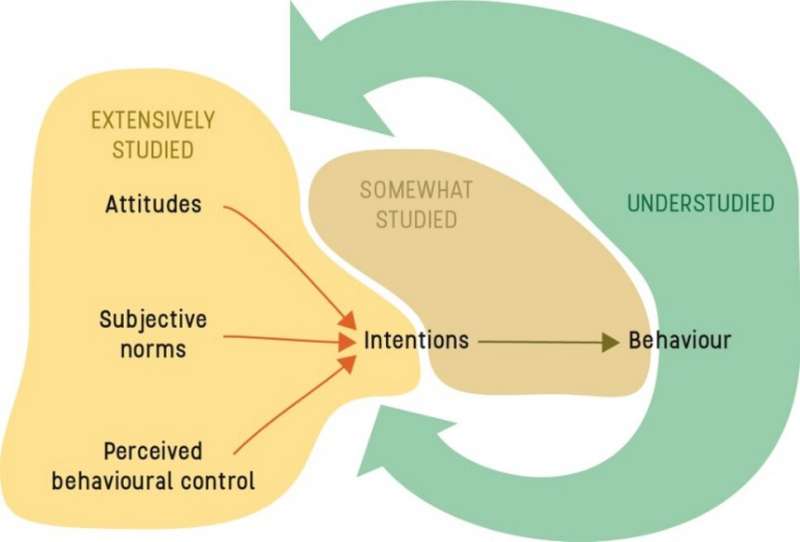Unique chance to change into pro-environmental behaviour in new urban environments

"Appealing to logic and values to break cemented habits is not enough. Now, when we're building so many new urban environments, there is a unique opportunity to make the environment promote pro-environmental behaviors," says Noah Linder, researcher in environmental psychology at University of Gävle.
Much of our unsustainable behavior is strongly habit driven, for example our eating habits, how we consume goods and services, and our traveling, such as the commute to and from work. Evolutionarily, there are a thousand reasons why we develop habits. For example, it frees up working memory, allows us to save time and gives us the ability to multitask.
Humans now find themselves in a world so full of information that we in fact need tools to navigate and manage. Developing habits is here a fundamental prerequisite for success. The problem arises when we want to get rid habits we have created earlier.
"Major behavioral changes are needed to build a sustainable future, but much of our behavior is guided by the choices we once made, and it is incredibly hard to break habits in the environment where they've been cemented," Noah Linder says.
It is estimated that we will build new urban environments for 2.5 billion people between 2010–2050 and it is crucial that these environments promote the behaviors we want to see as a society.
"Research clearly shows that we establish habits in environments that we often find ourselves in; it also shows that it is easier for us to change in new environments. The reason why is that in the environments our habits were established, there are many triggers that automatically activate habits and we do not reflect on that process. However, in new environments we are free of many of these triggers.
"Most of us may have experienced that it can be easier to make a restart after a move, when we're traveling or starting a new job. Moreover, few would try to cure someone of a serious addiction without first removing that individual from home. We need to harness that knowledge about how to break habits."
Designing an environment to promote certain habits
In Copenhagen, a cycling revolution has taken place. Copenhagen used to be a car-dominated city, but now 50% of all transport is by bicycle. The city made it a lot easier for cyclists by building clearly visible cycle lanes that were allowed to take a great deal of space on the road so that riding a bicycle would feel safe.
Arguably, what primarily promoted cycling was the major physical changes that showed what behavioral changes the city wanted.
Successful bans
In Sweden and London, smoking was banned in bars, and studies have shown that those bans affected people's views on smoking. According to Noah Linder, the most important finding was that norms and perceptions of how harmful smoking is were changed.
"So many people were against the ban, but after changing their behavior, their perception of smoking changed, and, to them, the perceived risk of smoking increased. The congestion charge in Stockholm is another example. Although many were critical at the beginning, opinions changed and were later in favor of the decision.
"Changing people's attitudes and values is incredibly hard. Today, mental and digital filters make it almost impossible to get through to people with information and education. Promoting pro-environmental lifestyles changes by designing or modifying the physical environment is an underestimated tool, we think," Noah Linder says.
More information: Noah Linder et al, Pro-environmental habits: An underexplored research agenda in sustainability science, Ambio (2021). DOI: 10.1007/s13280-021-01619-6





















